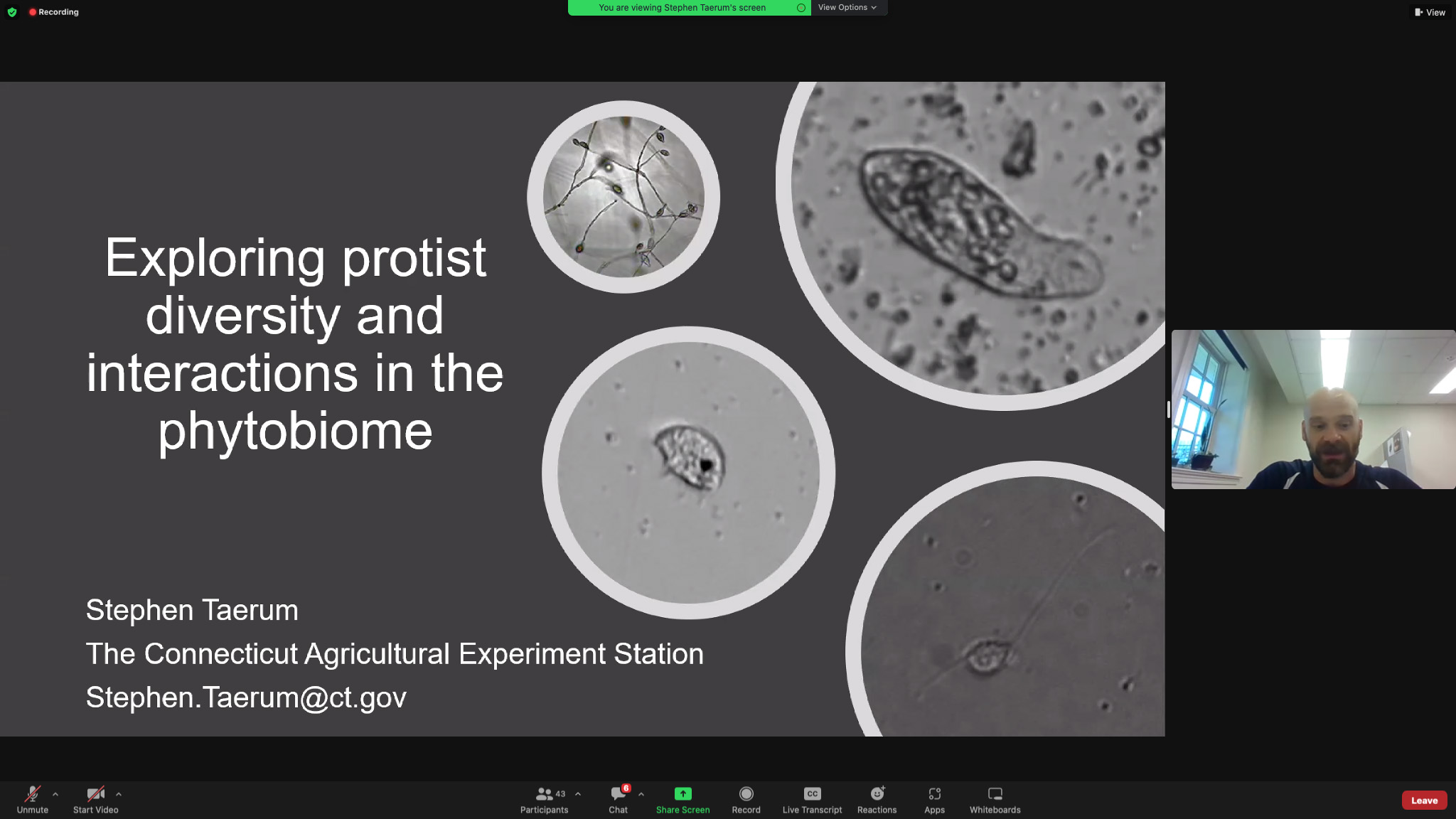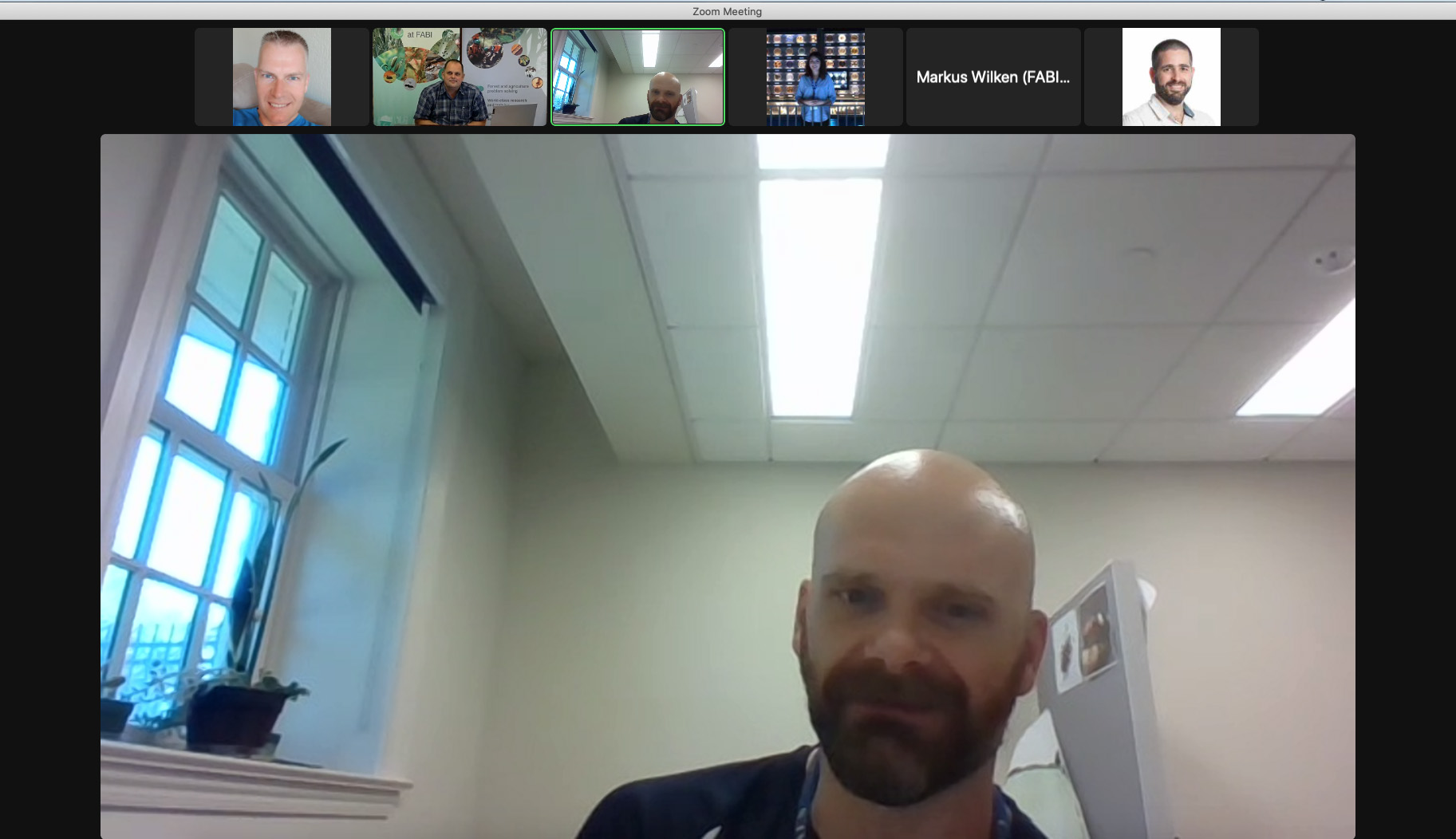FABI Alumnus presents the August FABI International Seminar 2022-08-26
Dr Stephen Taerum, a postdoctoral researcher at the Connecticut Agricultural Experiment Station in New Haven, Connecticut, USA (and FABI Alumnus) spoke on his research work investigating the complex interactions between plants, protists and bacteria using a variety of crop species at the FABI international Seminar on 25 August. Stephen, who received his PhD from FABI in 2015, is conducting experimental research using protists cultured from maize roots to examine interactions between plants, protists and bacteria. This research sheds light on a neglected component of most phytobiome studies, and will hopefully encourage additional research on the protist phytobiome.
Protists are highly diverse and abundant components of plant microbiomes. They influence plant health by recycling nutrients, shaping bacterial and fungal communities, and mitigating the impact of plant pathogens. However, apart from some pathogenic protists such as Phytophthora, little is known about their diversity and impact in the phytobiome.
In his presentation “Exploring protist diversity and interactions in the phytobiome,” Stephen discussed his research on protists and their associated bacteria in plant microbiomes, with a focus on maize and five solanaceous species. Using high-throughput amplicon sequencing, he discovered that the different plant species were associated with highly-similar protist communities. However, there were significant differences between plant compartments, as the phyllosphere (leaf-associated) communities were less diverse than and highly distinct from the rhizosphere (root-associated) communities. The rhizosphere communities in turn were less diverse than the surrounding bulk soil. Finally, using co-occurrence networks between protists and bacteria in the different plant compartments, he discovered several bacteria and protist taxa that formed important hubs in these networks, and are candidates for future research on protists in the phytobiome.



